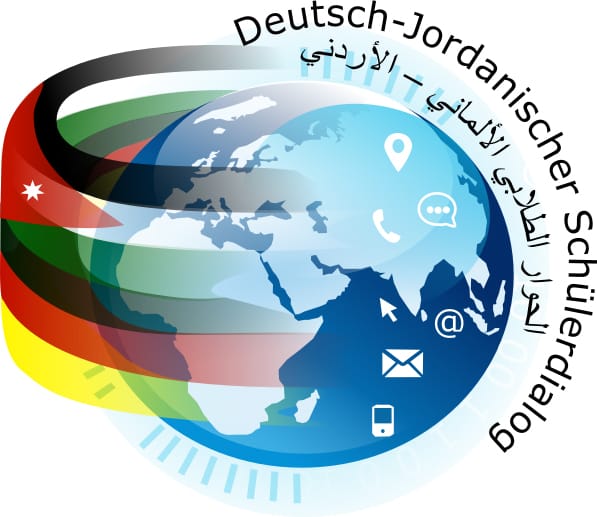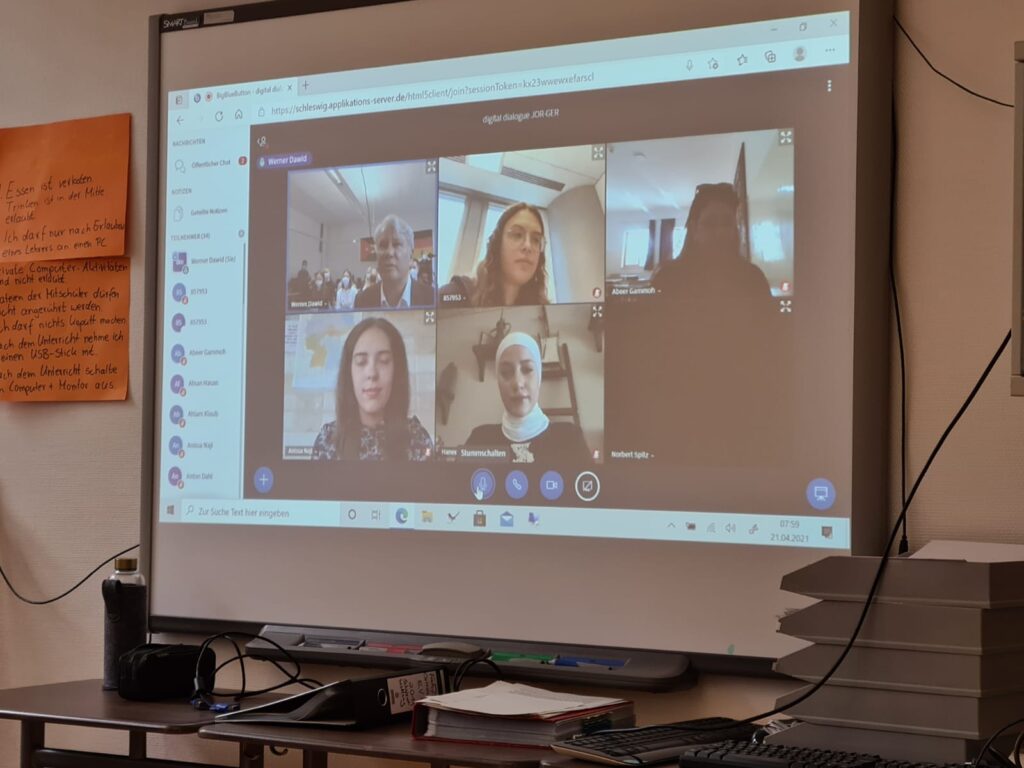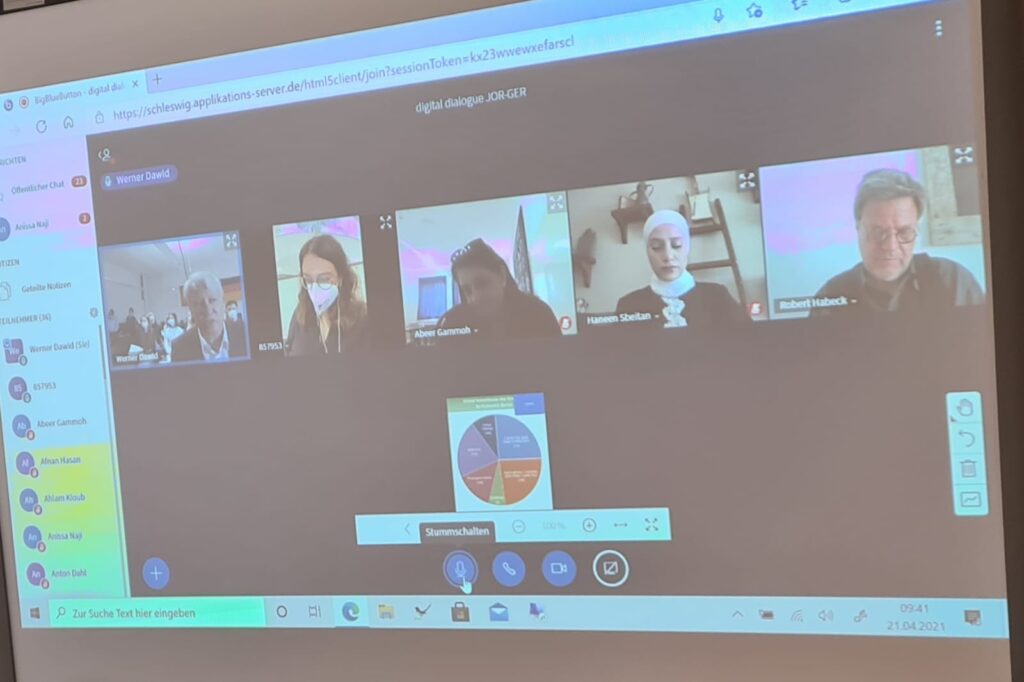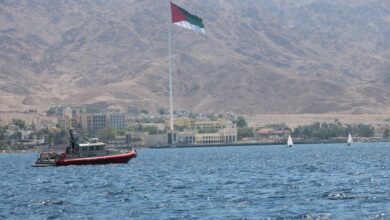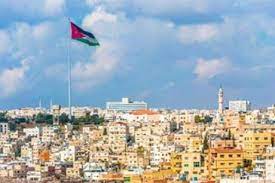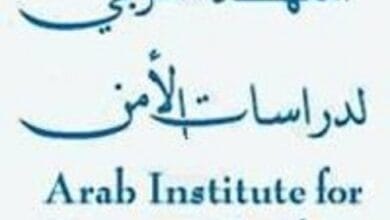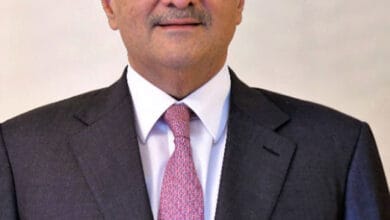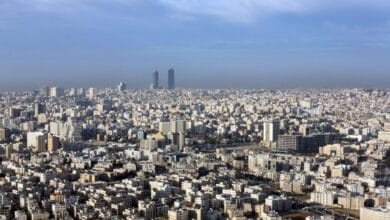As part of the German Education Cooperation Program — The Conclusion of the “German-Jordanian Student Dialogue” Project with Schools from Jordan and Germany in coordination with the Goethe-Institut Jordan
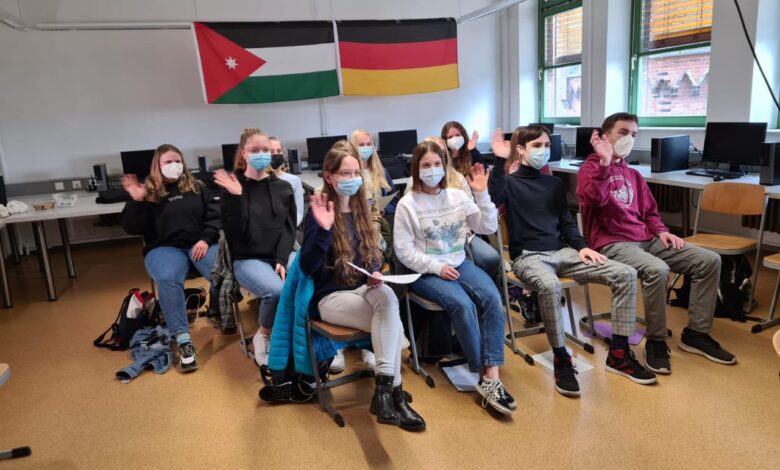
shahennews
The “German-Jordanian Student Dialogue” project, which Klaus-Peter Katzer developed, came to an end at a live broadcast between Germany and Jordan. The project was executed in cooperation with the Domschule (Cathedral School class 10 g and their WiPo teacher Mr. Werner Dawid) and the Dannewerk School Schleswig (Dannewerk School class 10 a and their teacher Ms Nicole Fischer), the Al-Asriyya School (with the project teachers Ms Abeer Gammoh and Ms Haneen Sbeitan) and the Al-Saadah College School Amman (with the project teacher Ms Suha Fayes), the Goethe-Institut Jordan, and with the support of the Ministry of Education, Science and Culture of the State of Schleswig-Holstein.
The project focused on the impotance of Digitalisation in overcoming social and spatial boundaries and distances. It enables real-time communication and brings people together all over the world. These core statements were the content-related objective of the project
“Most of you probably first had to look at the map to find out exactly where the two cities – Schleswig in Germany and Amman in Jordan – are located,” said Dr Norbert Spitz, Director of the Goethe-Institut Amman/Jordan, in his welcoming address to the students, summing up the first learning objective of the project “German-Jordanian Student Dialogue”. The project had offered the opportunity to learn from each other on many levels, to overcome fears of contact and to discover similarities, regardless of the geographical distance.
The Dannewerk School and the Domschule from Schleswig worked together with the Al-Asriyya School and the Al-Saadah College School Amman from Jordan for more than six months as part of the project and got to know each other as students and teachers. Based on the 17 Sustainable Development Goals (SDGs) of the United Nations (UN), the students had set themselves tasks, which were then presented live via the video conference platform “BigBlueButton”. And it was all in English – an additional challenge for the students on both sides of the screen.
For the final event, Delara Burkhardt, Member of the European Parliament, was also present and answered the questions of the students from both countries. She did not hesitate to answer personal questions, such as how she herself is perceived as a young woman in the political environment and whether family and career can be combined in the political environment. For the topic “climate change”, two special guests joined the discussion: Dr. Robert Habeck, Federal Chairman of the Bündnis 90/Die Grünen (Alliance 90/The Greens) together with candidate for chancellor Annalena Baerbock, who discussed with the students the reasons and effects of climate change – and what, in Dr. Habeck’s view, can be done on a political level to flatten the upward curve.
Afnan Hasan, a student at the Al Asriyya School in Amman, gave a very positive overall feedback on the project:
I would like to take the opportunity to thank my team and the German team. It was a new and unique experience, I really enjoyed working on interesting topics such as; climate action and peace, justice and strong institutions. It was also a pleasant surprise to meet MEP Delara Burkhard and Robert Habeck (Co-Head of Green party), Dr. Spitz (Head of Goethe-Institute Jordan), Leonie Lorenz (Head of Culture and Press Section German Embassy Jordan).
Due to covide-19 we had many difficulties working as a team and also discussing our different points of view. I learned many new research methodologies, in addition; to new writing skills, it also improved the areas of critical thinking and problem solving even in my daily life. Communicating with the German team was a new and an insightful experience, first of all we had the chance to meet a new culture and make new friends and I’m really considering studying in Germany.“
Ahlam Alkloub from Al Asriyya School Amman was amazed by the exchange as well: “Participating in the SDG project was an honor, it was a great experience to interact with students who live halfway around the world and to share our opinions on global problems that we all experienced on different scales. Learning their point of view on these issues helped me gain a wider perspective of these problems and how they affect countries all around the world.“
Meike Witte, contact person for democracy education at the (German) Ministry of Education, Science and Culture, was full of praise and particularly emphasised the productive discussion of the UN’s SDGs – which were especially held in English and not in their mother tongues. The students had the opportunity to overcome their fear of interacting with other cultures and to grow from this experience. The integrated digitalisation also made the project particularly future-oriented. This has proven to be a winning factor, especially in times of pandemics. If committed teachers can be found, there is no reason why the project should not be offered again.

